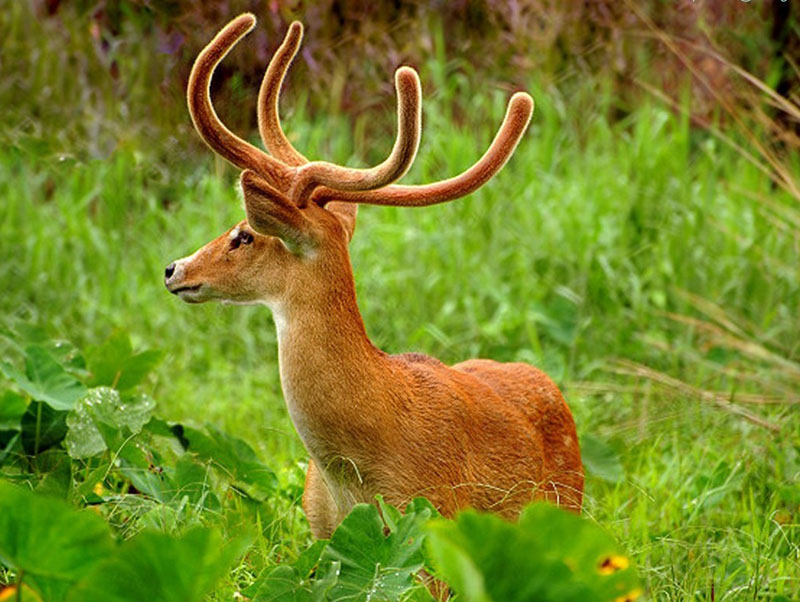Grim reality of Manipur’s ‘dancing deer’
IMPHAL: On the face of it everything looks serene at the Loktak Lake in Manipur. But in reality, it’s a bleak picture for the endangered brow-antlered deer which are battling poaching, pollution and loss of their natural habitat — floating biomass called ‘phumdis’.
By the last count in April 2015, there were just about 260 of this species that inhabit in the nine square kilometres of the Keibul Lamjao National Park (KLNP). And it’s not looking bright at all, with poachers roaming freely in the area. The deer are killed with impunity and the carcasses sold in the tribal markets.
Experts point out that immediate intervention is needed to protect this rare species, which is also known as the ‘dancing deer’. That intervention should begin with release of funds to ensure that the Park is well protected.
However, fund for Manipur’s state animal is hard to come by. Forest Minister Irengbam Hemochandrah has been knocking on the doors for help.
Besides lack of funds, the brow-antlered deer are facing the danger of diseases. As per a KLNP official, the deer are coming in contact with livestock which are spreading deadly diseases. The officials often face hostile villagers who have in the past demanded that KLNP be closed down. Over the years, the floating biomass habitat of the deer has been decreasing its buoyancy and thickness. As a result, the deer are finding it difficult to thrive in their natural habitat.
Some wildlife experts wanted the deer to be relocated to sanctuaries in Assam. But, it may not be easy for the deer to survive there due to lack of floating biomass.
In the 1970s, the dancing deer had become almost extinct. In 1975 only 12 were sighted. It was then the Manipur Wildlife (Protection) Act, 1972, was enacted and the deer’s natural habitat in Loktak Lake was declared a National Park. The number of the deer then increased to 180 in 2003 and 204 in 2013. That may sound encouraging, but it’s still a grim situation. A lot more needs to be done to protect this species, experts say.






